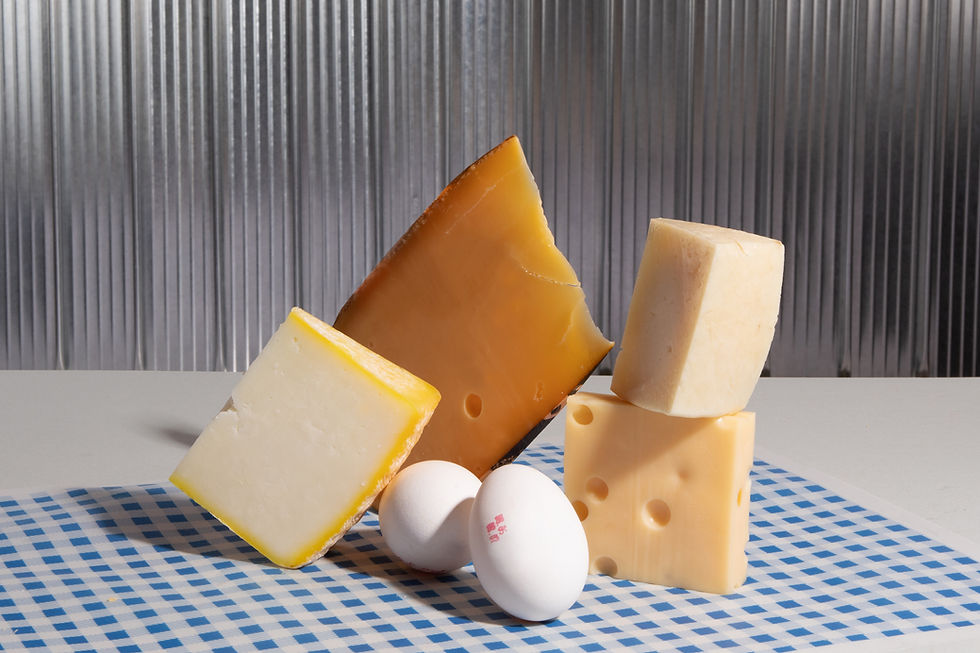Is eating meat good or bad?
- Aaron Slotkin, C.C.N., M.S., Pharm.D.
- Nov 25, 2017
- 3 min read

Going vegan or vegetarian is very popular these days. It is also gaining extensive support from the medical community.
This may be because of the numerous scientific studies that have shown decreased meat consumption is linked to better health and less disease as well as the production of various documentaries showing the pitfalls of animal product consumption.
But before we go further, there are some things I wanted to make clear. I am not a vegetarian, and I don’t think it is necessary to become one in order to live a long and healthy life.
However, I have great respect for those who are a vegan or vegetarian. It is a highly responsible thing to do, not for just personal or humane reasons, but spiritual and environmental. I also feel it can be a very healthy diet, but one must be careful. It is not easy to eat a healthy diet as a vegetarian or vegan when living the fast paced lifestyle.
Keep in mind the studies supporting vegetarianism as better for one’s health are observational studies. Maybe the people who are vegetarian or vegan in these studies care about their health more (smoke less, have less stress, etc.) then those who consume animal protein? It is hard to determine. It would also be hard to design a double blind placebo controlled study using a chicken drumstick. (For those of you that don’t know, a double blind placebo controlled study is the gold standard of medicine). I also feel people are biochemically very distinct. There are people that thrive on a vegan diet. And there are people that do not.
When it comes to science, we humans are still biased. We tend to look to the studies that support our view, and ignore or discredit those that do not. For example, there are studies linking vegetarianism to an increase of mental disorders as well as surveys showing over 80% of those going vegetarian returned to meat eating after several months.
People like to operate in extremes. Zero carbs, fasting, extreme detox, etc. can be appealing as a way to transform oneself, offering that quick fix. However, rarely does a quick fix not also come with negative consequences.
A good portion of my clients come to me on a vegan or vegetarian diet, but still suffer from issues such as weight gain, mood issues like anxiety and depression, gut problems, etc. As a nutritionist, the first thing I look at is their diet and lifestyle. As far as their diet goes, it is often lacking in many important macro and micro nutrients. Some of those that instantly come to mind are amino acids, B vitamins, and minerals.
To maintain and build muscle mass, we humans typically need to consume somewhere around 20-30 grams of complete protein with meals, 2-3 times per day. Maintaining sufficient muscle mass is vital to maintain not only an ideal weight, but a healthy gut and brain as well. Sufficient B vitamins and key minerals are crucial for a primed metabolism and energy, a balanced immune system, memory, mood, etc.
Meal delivery services can be very helpful when adjusting one’s diet. Here is a link to a fantastic meal delivery service that is vegan / plant based: FoodFlo.com
And before we go, here is one of my favorite plant based recipes that can make a great breakfast or snack:
Blended Muffins
Makes about 11-12 muffins. Serving size: about 2 muffins.
Wet ingredients: 1 cup baby spinach, 4-8 pitted dates, 1/4 cup honey, 2 tbsp ground flaxseeds, 1 large banana, 1 cup unsweetened coconut milk or hemp milk
Dry ingredients: 1 cup rolled oats, 1/2 cup oat flour, 1/2 cup buck wheat flour or coconut flour, 1/2 cup berries, 1/2 cup walnuts, 4 tablespoons chia seeds, 2 teaspoons cinnamon, 1/4 tsp. baking powder, 1/4 tsp. baking soda.
Directions: Preheat oven to 350. Grease two muffins pans with oil. Add all the dry ingredients to a bowl and mix. Add all the wet ingredients to a blender and blend until smooth. Pour the smoothie portion into the bowl with the dry ingredients and mix until even. Pour the mixture into the muffin tins and bake for 30-35 minutes or until firm and browned on top. Enjoy.


































Comments